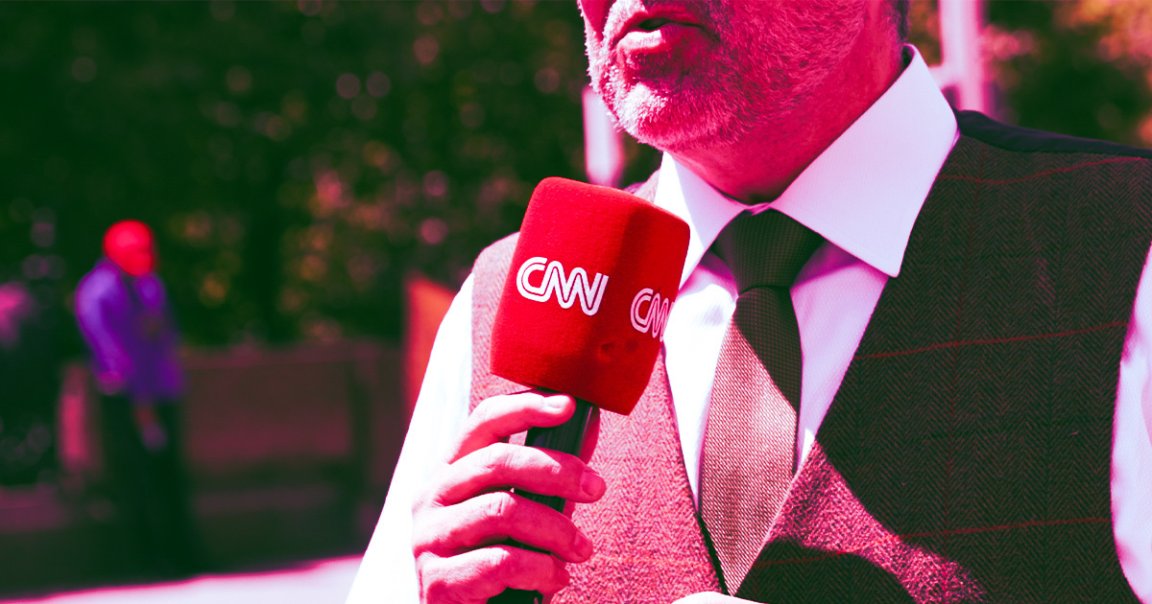
Harness On
CNN announced today that it would be laying off another 100 staffers, or three percent of its overall workforce — a decision that CEO Mark Thompson billed as part of an overall modernization and pivot-to-video effort.
And yes, in his memo to CNN employees — as published in full by The Hollywood Reporter — Thompson was sure to mention that a “strategic push into AI” will be part of that effort, too.
In the memo, Thompson wrote that he wants the network to “regain a leadership position in the news experiences of the future.” This mission “will include a strategic push into AI,” per the document, “to determine how best to safely harness this emerging new technology to serve our audiences and deliver our journalistic goals more effectively and responsively.”
Thompson didn’t elaborate further on any specific AI plans, but the mention is significant. CNN is a massive and deeply influential news organization, and where and how it uses AI — or, conversely, where and how it chooses not to — has the potential to set off significant dominoes across the journalism and broadcasting industries.
“We’re living through a revolution in both news and television consumption,” Thompson’s memo noted elsewhere. “To me, the right response to this revolution is not despair but adaptation and innovation.”
Bandwagoneer
That said, other major media institutions that have announced AI shifts seem to have little to show for it collectively. Some AI efforts, like CNET’s disastrous foray into error-laced AI articles under the leadership of owner Red Ventures, or USA Today owner Gannett’s publishing of extremely low-quality high school sports roundups, have been deeply embarrassing and damaging to brands. In the same lane was the mass publishing of fake author-bylined articles, many of which were generated using AI, at Sports Illustrated, The Miami Herald, and USA Today (again), among many other publishers.
And yet, other AI efforts in media have been equal parts underwhelming. Publications including USA Today (again) and The Washington Post, for instance, have rolled out AI-generated bullet points at the top of news stories. The fact that a human writer could likely whip these up pretty easily aside, the function feels… well, it feels far less than innovative.
Machine learning may prove to have some interesting applications in the reporting process. It’s been touted as an effective tool for helping journalists sift through large amounts of data to find patterns, and is extremely useful for audio transcription. Broadly speaking, though, most media C-suite utterances of AI initiatives — particularly those that have accompanied mass layoffs — have been publicly followed with content applications, and mostly sloppy ones to boot.
For now, whatever CNN’s “strategic” AI push will entail remain unclear. And in the meantime, we’ll add Thompson’s memo to the ever-growing pile of journalism-layoffs-coupled-with-AI-announcments.
More on AI and journalism: Gannett Promised to Be Super Responsible With AI Before Completely Bungling It